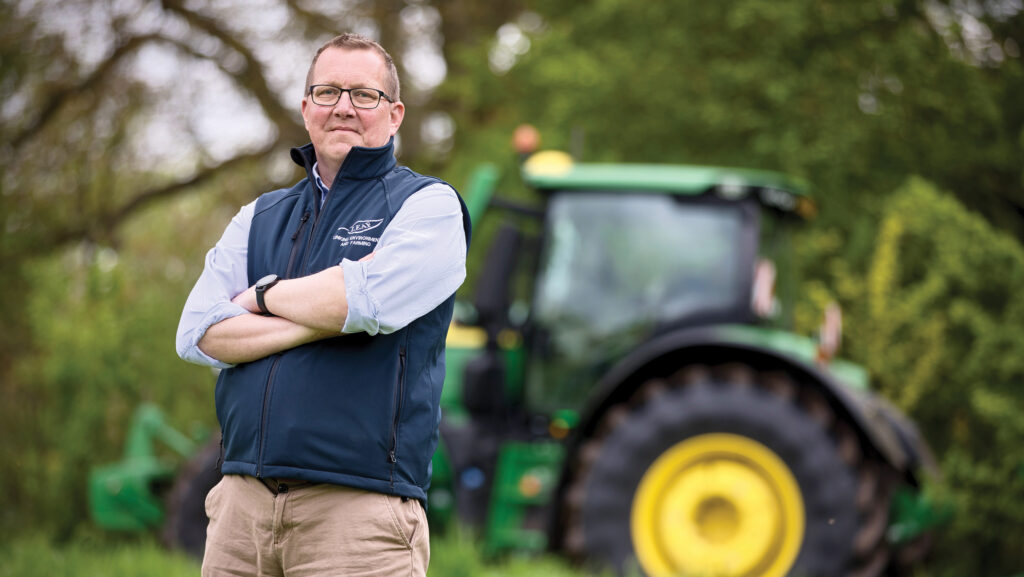Transition Farmer: Setback as deer destroy tree new growth
 Andy Bason © Richard Stanton
Andy Bason © Richard Stanton Transition farmers are striving to secure a better future for their businesses. We catch up with Andy Bason on his farm in Hampshire.
Deer, voles and extreme weather have taken their toll on a newly-planted agroforestry venture at Newhouse Farm in Hampshire.
Farm manager Andy Bason oversaw the planting of 350 fruit trees in a 10ha arable field as a self-funded agroforestry project. But what Andy hadn’t counted on was the appeal they would have to fallow deer.
See also: Transition farmer update: Andy Bason advances agroforestry
Farm facts: Newhouse Farm, Northington Down, Alresford, Hampshire
- 800ha main farm
- Annual rainfall: 770mm
- Soil type: Loam.
Transition goals
- 30% cut in carbon emissions
- Establish 10ha of agroforestry
- Establish 10ha of woodland
Wire mesh guards, proved to be an inadequate defence against the deer, which descended on fields in large herds, as many as 150 at a time.
They destroyed the new growth on many of the trees by chewing them to a point below where they had been grafted.
The decision was taken to uproot all of the remaining trees and replant them this autumn under a Sustainable Farming Incentive (SFI) agroforestry option.
“Advice we have had is that it is better to start again completely from scratch in the field, this time with 1.5m high guards,” says Andy.
He admits that funding from the SFI is an important incentive for giving it another go. “When we first planted, there was no funding for agroforestry, but we are in a much better place with the SFI.”
Some trees were salvaged after the deer invaded. These have been relocated to a 10ha woodland which was established on the farm in the autumn of 2023 using a grant from the English Woodland Creation Offer.
The business received £6,300/ha to meet the capital cost of planting the land, with 80% native broad-leaf trees and 20% non-native species, and will be paid £350/ha for 15 years to maintain them.
The extreme weather in 2023 also hit young trees on the farm last year. Known as whips, the young trees died because of the exceptionally dry conditions of the spring.
“On the scale we have, it wasn’t possible to water or irrigate,” says Andy.
